Governor’s Charges
Building the State’s Talent Pipeline
The Tri-Agency Workforce Initiative will build the state’s talent pipeline by increasing the number of Texans with the skills and credentials required for high-demand jobs and industries. Building a strong Texas workforce is an essential strategy for accelerating economic growth and ensuring that Texans are prepared for jobs in the industries that will power the state’s economy now and in the future. In February 2020, Governor Abbott asked the agencies to marshal their combined resources to address long-term education and employment needs across the state. The Governor charged the Tri-Agency Initiative with developing strategies in seven key areas: readiness, completion, transitions, upskilling, educator pipeline, partnerships, and infrastructure.
The commissioners should recommend strategies to ensure students are prepared for future growth at each stage in the educational pipeline. Specifically, the commissioners should consider:
- Improvements to the state’s subsidized childcare programs that will increase kindergarten readiness and options for working parents.
- The implementation of House Bill 3’s focus on early reading.
- Methods to support middle school students in strengthening literacy and quantitative reasoning skills and improving readiness for high school and future success.
- Strategies to ensure students demonstrate the knowledge and skills necessary to be successful in their college, career, or military service.
The commissioners should recommend strategies to ensure students are prepared for future growth at each stage in the educational pipeline. Specifically, the commissioners should consider:
- Strategies for strengthening dual credit offerings, ensuring rigor, and creating clear pathways toward credentials of value for dual credit students.
- Factors that contribute to students’ decisions not to enroll directly in college or workforce training following high school graduation.
- Strategies for measuring and increasing completion rates at community colleges, including non-credit certificate programs.
- Strategies for increasing the number of Texans who complete high-value, high-quality credentials among populations who previously stopped out or dropped out of educational institutions.
The commissioners should analyze and make recommendations regarding strategies to streamline educational pathways, ensuring students can seamlessly transition into high-wage and high-demand careers. Specifically, the commissioners should:
- Recommend strategies to better support the advising needs and career exploration opportunities for current and potential students, including transitioning veterans and life-long learners.
- Examine drivers of student debt and default and recommend strategies for improving the affordability and transparency of higher education.
- Identify best practices to increase the efficiency of state educational institutions and private sector training programs in adapting to state workforce needs.
- Evaluate existing efforts, particularly those at Windham School District, to reintroduce formerly incarcerated individuals into the workforce with skills and credentials for high-demand careers.
The commissioners should recommend strategies for improving the state’s capacity to produce credentials of value aligned with the needs of high-wage and high-demand occupations. Analyses should include: pathways, ensuring students can seamlessly transition into high-wage and high-demand careers. Specifically, the commissioners should make:
- Evaluations of workforce needs in various regions of the state and how these needs align with the credentials currently offered by educational institutions.
- Recommendations to strengthen the value of career and technical education (CTE) courses by ensuring multiple entry and exit points and opportunities for work-based learning.
- Recommendations to improve the alignment of community college curricula with regional workforce needs, addressing the needs of first-time job seekers and lifelong learners.
- Recommendations to improve access to privately funded internships and to increase employer-sponsored educational opportunities for current employees.
- Recommendations for reducing state regulatory and licensing barriers to the broader creation and adoption of apprenticeships and upskill/reskill programs by industry.
The commissioners should analyze and make recommendations to increase the supply of highly qualified and well-trained individuals entering the teaching profession across the state. Analyses should include:
- An evaluation of existing programs that seek to lower the education costs and debt for future teachers, including recommendations for efficiency improvements and innovations.
- Recommendations to ensure that teacher education and training will fully implement House Bill 3’s reading improvement strategies.
- Recommendations to ensure that high-quality teachers are recognized for the value they provide students and our state.
The commissioners should explore and recommend options for increasing economic activity in rural Texas, including innovative collaborations among employers, institutions, and rural communities, and easing of regulatory burdens that may inhibit economic growth and collaboration. The commissioners should also explore ways for businesses, school districts, and institutions of higher education to partner together to offer expanded educational options to employees and their children and to strengthen educational and workforce programs across the state.
The commissioners should identify strategies to align agency operations, increase program efficiency, improve data analysis and capacity, and to refine the state’s strategic plan, Building a Talent Strong Texas, if necessary, to ensure the state’s goals continue to reflect the state’s needs.




